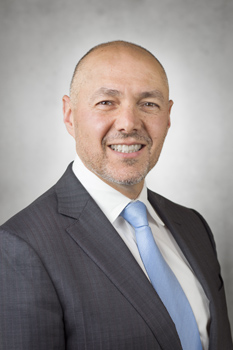Immunotherapy Research for Head and Neck Cancers Gets Boost from V Foundation Grant
Published Date
By:
- Yadira Galindo
Share This:
Article Content
A team of University of California San Diego School of Medicine and Moores Cancer Center researchers studying new drugs designed to break resistance to cancer immunotherapy has been awarded a V Foundation for Cancer Research translational grant of $600,000 over three years.

Judith Varner, PhD, will lead the multi-year study at UC San Diego School of Medicine.
Led by Judith A. Varner, PhD, professor in the departments of Pathology and Medicine at UC San Diego School of Medicine, the team will build upon research recently published in the journal Nature in which they identified the enzyme PI-3 kinase gamma (PI3Ky) as a molecular switch controlling immune suppression. The researchers will conduct clinical trials to test a PI3Ky inhibitor, called IPI-549, alone and in combination with other drugs in head and neck cancers to boost the effectiveness of immunotherapy.
“Check-point inhibitors have received a great deal of attention because they have saved the lives of some people with advanced cancer, but these drugs have not worked in most people,” said Varner. “Research shows that patients with cancer have profound immune suppression. Our work identifies a path to turn off immune suppression. And we have the drug that can do it, as demonstrated in animal models of cancer.”
In mouse models, they found that PI3Ky signaling promotes immune suppression by inhibiting activation of anti-tumor T cells. Administering IPI-549 reversed immune suppression, stimulated response to checkpoint inhibitors and eliminated cancer in 50 to 100 percent of test animals.
The V Foundation grant will support a pair of phase I clinical trials that will begin enrolling patients in the next few months. The first will be a trial for patients with late stage head and neck cancers, followed by a second trial for patients in the early stage of this disease.

Ezra Cohen, MD, heads the San Diego Center for Precision Immunotherapy at UC San Diego Health.
“Immunotherapy holds a lot of promise for patients but we need to increase its potency to be effective in a larger number of patients,” said Ezra Cohen, MD, who heads the San Diego Center for Precision Immunotherapy at UC San Diego Health. “This study could lead to greatly improved outcomes for patients with head and neck cancers and many other malignancies. It may also allow us to predict which patients will benefit from this kind of therapeutic approach.”
Together with Karen Messer, PhD, an expert in biostatistics; Alfredo Molinolo, MD, PhD, an expert in pathology; and Andrew Sharabi, MD, PhD, an expert in radiation oncology, Varner and Cohen will evaluate whether PI3Ky inhibitors can enhance anti-tumor immune responses and improve patient survival. In addition, they will test a new method of monitoring patient immune response to this therapy.
Further mouse model studies will evaluate novel therapies, including a combination of chemotherapy or radiation therapy with PI3Ky inhibitors to identify additional treatment options to promote cancer eradication. The team will also investigate the cellular and molecular mechanisms behind successful immune responses resulting from these therapeutic approaches to try to improve therapies and diagnostic strategies.
Share This:
You May Also Like
Stay in the Know
Keep up with all the latest from UC San Diego. Subscribe to the newsletter today.



